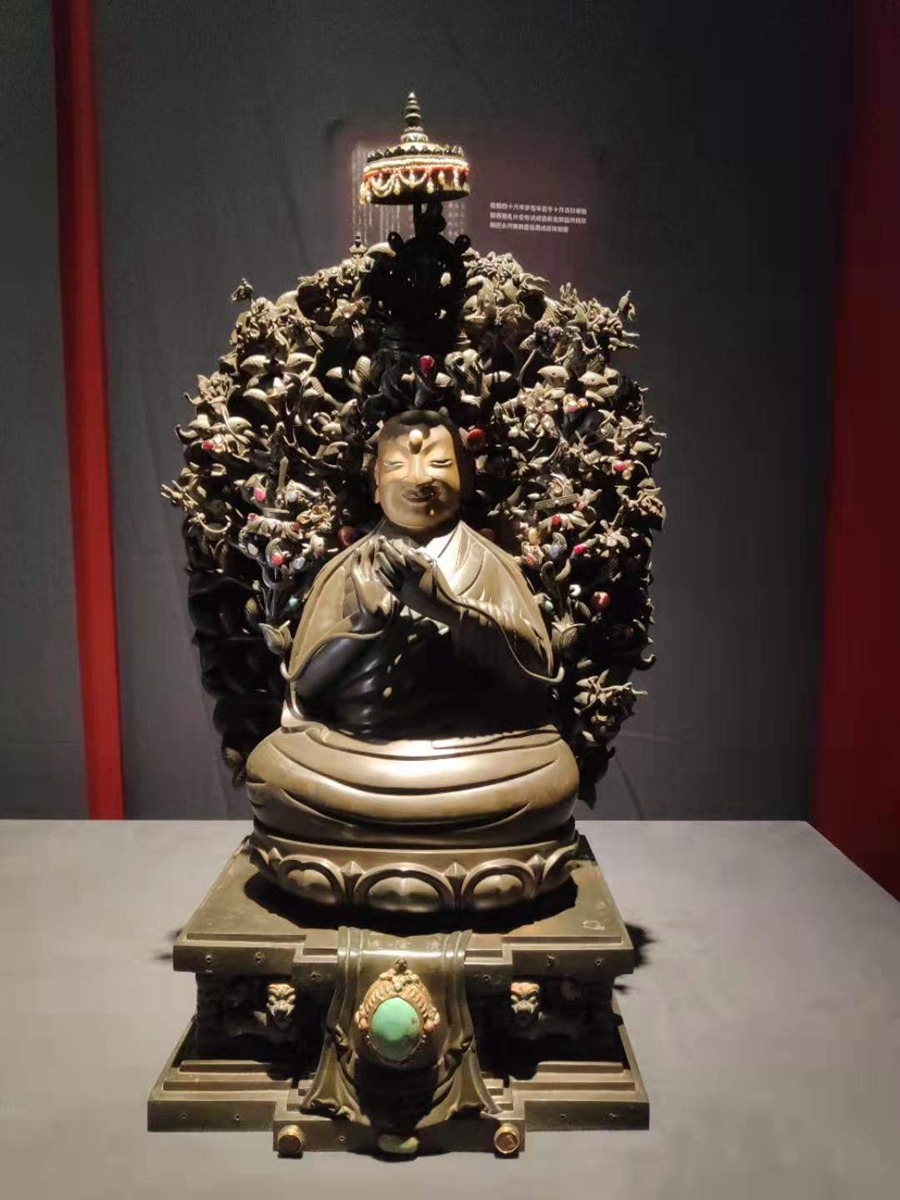Nurturing a spiritual connection


"They are symbols of communication among different ethnic groups," Wang says.
Tibetan Buddhism has a diversity of sects, one of which is the dominant Gelug school. It was founded by guru Tsongkhapa Lobzang Drakpa (1357-1419). Tashi Lhunpo Monastery was founded in 1447 by Gedun Drupa, an eminent disciple of Tsongkhapa. As such, it is revered as one of the most important sites of not only the Gelug school, but also to Tibetan Buddhism.
In 1713, Emperor Kangxi, whose reign lasted from 1662 to 1722, appointed the fifth Panchen Lama the bestowed title of "Panchen Erdeni" upon him and gave him gold plates and a gold seal to symbolize official approval from the imperial court of the Qing Dynasty.
"It then became a routine that each Panchen Lama had to be confirmed by the central government," says Luo Wenhua, a researcher at the Palace Museum and curator of the exhibition.
He explains that the gold plates and gold seal were chosen for the exhibition for their extraordinary historical significance.


















